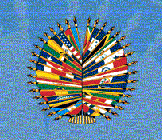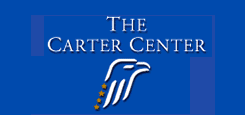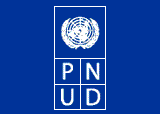AI INDEX: AMR 53/005/2003 21 February 2003
AMNESTY
INTERNATIONAL
PRESS RELEASE
AI Index: AMR 53/005/2003 (Public)
News Service No: 041
21 February 2003
Venezuela: Human rights once more hang in the balance
Amnesty International today expressed grave
concern that this week's events in Venezuela --
including the detention of a prominent opposition
figure and the killing of army dissidents -- could
lead to a further deterioration of the human
rights situation in the country," Amnesty
International said.
At midnight on Wednesday 19 February, Carlos
Fernandez, the President of the business
association Fedecamaras, and a prominent
leader of the general strike called by the
opposition, was arrested by armed police agents in
a restaurant in Caracas on charges including "rebellion,
treason, instigation to commit criminal acts,
conspiracy and sabotage". He was reportedly given
access to legal counsel and his wife verified,
after visiting him, that he had not been ill-treated.
Further warrants have reportedly been issued
against other prominent members of the opposition
who were involved in the 63-day national strike,
including Carlos Ortega, head of the Venezuelan
Workers Confederation (Confederación de
Trabajadores Venezolanos,CTV), who has
reportedly gone into hiding and claims that he
fears for his safety if detained.
Although the government has denied any politically-motivated
interference by the Executive in these arrests,
days before President Hugo Chávez had urged judges
and public prosecutors to take action against
strike organisers. Furthermore, he has publicly
expressed satisfaction at the arrests of what he
called "coup plotters".
"The Judiciary has a key role in preventing these
events from triggering an escalation of the human
rights crisis," Amnesty International cautioned.
The organization stated that any judicial action
against the former leaders of the strike must be
independent of any political interference and
strictly adhere to international standards of due
process, reflected in the constitution.
The arrest came only days after the deaths of
three dissident soldiers and one woman last
weekend. The victims, whose bound and gagged
bodies were found at the beginning of this week in
Caracas, had been shot dead. There were reported
signs of torture on the bodies. The victims had
been part of the anti-Chávez demonstration that
had occupied Plaza Altamira in Caracas. The
government has attributed the killings to internal
feuds, while opposition figures stated publicly
that the deaths were politically motivated.
"Given the Judiciary's crucial role in diffusing
tensions around this case, there must be an
immediate, impartial and exhaustive investigation
into the killings," Amnesty International added.
"Immediate steps must be taken to protect
witnesses who may be subject to intimidation given
the politicised nature of the case".
An Accord Against Violence and for Peace and
Democracy was signed between the government and
the opposition on 18 February. The accord,
brokered by César Gaviria, secretary-general of
the Organisation of American States (OAS), calls
for the generation of "a climate of peace and calm
in the country" and for the legislature to
establish a "peace commission" that would be
charged with investigating the deaths that took
place during the failed coup against President
Hugo Chávez in April 2002.
Amnesty International reiterated its call on the
government, opposition and international community
to ensure that respect for human rights principles
is central to the agenda for resolving the crisis.
Background
Throughout this year, political polarization in
Venezuela has been threatening to lead to large-scale
violence. Tension was especially intense during
the 63-day national strike that ended earlier this
month, which had been convened by the opposition
to overthrow President Chávez. Three people were
killed during an opposition demonstration held on
6 December in Francia Square in Caracas. The
strike paralysed many sectors of the economy and
analysts forecast that the Venezuela economy may
shrink by up to 25% this year.
On 11 April 2002, a similar national strike led to
acts of violence which left 20 dead. This violence
in turn led to a failed coup and the temporary
detention of President Chávez. On 13 April, the
President returned to power after major national
and international protests at the breaking of the
constitutional order. Since then, there have been
attempts to negotiate a solution. César Gaviria,
President of the Organization of American States
is currently acting as a mediator in talks between
the government and the opposition.
For more background information, see Venezuela: A Human Rights Agenda for the Current Crisis (AMR 53/001/2003), published by Amnesty International in January 2003: http://web.amnesty.org/ai.nsf/index/amr530012003
Public Document
****************************************
For more information please call Amnesty
International's press office in London, UK, on +44
20 7413 5566
Amnesty International, 1 Easton St., London WC1X
0DW. web:
http://www.amnesty.org
For latest human rights news view
http://news.amnesty.org
http://web.amnesty.org/library/index/ENGAMR530052003


